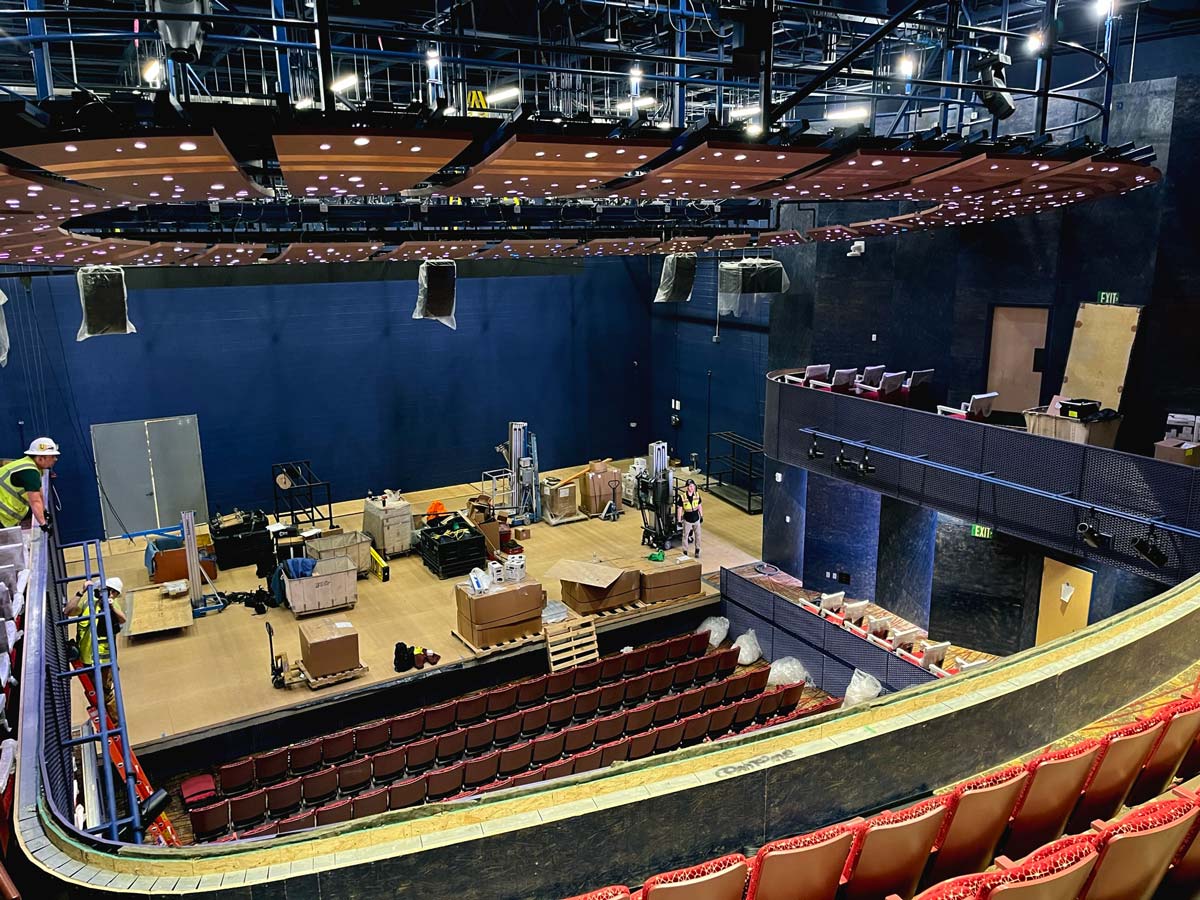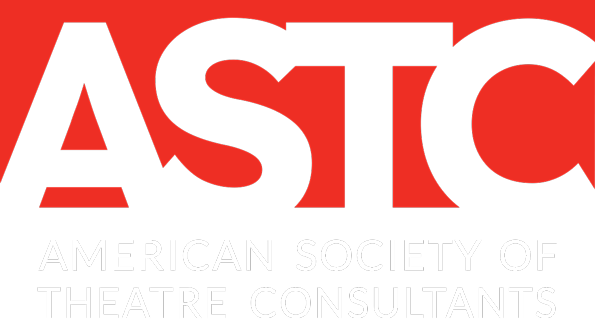Did You Know – Top Ten Reasons a Dealer is not a Theatre Consultant

Observations during construction and testing after completion are important services to deliver the project the owner has come to expect. (Photo by author).
The planning, design, and specification of performance venues is a complicated process. Experts can be hard to find, particularly in some areas of the country. Complicating matters are theatre and stage equipment dealers who are viewed as (or claim to be) “consultants.” Dealers, integrators, or manufacturer’s representatives are very knowledgeable about the products they sell, and how those products might be installed and used in a venue. However, dealers may have their own commercial interests, no matter how friendly they seem. Here are some key reasons why an ASTC Theatre Consultant may be a better fit for your next project.
- Theatre Consultants are not salespeople. They do not receive commissions from manufacturers or the sale of equipment.
- Theatre Consultants keep the big picture goals and guiding principles of a project in mind. Ideally, they have been involved early and throughout the design process, including at budget milestones. Dealers typically do not maintain the same level of commitment and understanding of a project throughout the design process.
- Theatre Consultants are independent designers paid to provide unbiased advice. Dealers may provide their design services for free, with the expectation of landing a project. Free advice does not necessarily mean comprehensive advice.
- Theatre Consultants typically prepare plans and specifications for competitive bidding. These are created with specific project goals in mind. Dealers may attempt to create specification locks to discourage or disqualify their competition.
- Theatre Consultants look at the entire project. Theatre consultants are not just equipment specifiers; they look out for the needs of the owners and users of the performance space holistically. From providing programming, planning, and seating layouts to the electrical power and structural loading criteria, theatre consultants lay the groundwork for the overall design of a theatre building. Dealers typically do not engage in this level of detailed coordination and may not be qualified to provide guidance on these topics.
- Theatre Consultants will review and coordinate the performance equipment. They work with the other consultants, including mechanical (ducts!), fire protection (sprinklers!), and electrical designers, to name a few, during the design stages. Coordinating the performance equipment with other buildings systems during design minimizes the risk of costly coordination “surprises” or equipment modifications during construction.
- Theatre Consultants are knowledgeable about the codes and standards affecting performance venues. In fact, many ASTC consultants are actively involved in the code and standards writing process.
- Theatre Consultants can assist the design team, contractor, and owner in evaluation of bids or proposals for the work. A dealer can explain their own proposal, but an independent consultant can provide an unbiased review of all proposals and confirm they meet design intents and specifications.
- Theatre Consultants review and comment on shop drawings. They review performance equipment and the work of other trades for compliance with specifications and for coordination. They answer Requests for Information (RFI).
- Theatre Consultants review the installation to ensure it operates as intended. It is always best to have an independent observation of the completed work to ensure it meets specifications and standards. The Owner deserves to get what they paid for.
Don’t be confused. Theatre Consultants value dealers, integrators, installers, and manufacturer’s reps as important to the success of a project. Consultants depend on good contractors to perform the work required to build and maintain quality venues. If the scope of work is limited to a simple “in kind” system replacement or a modification of specific performance equipment, a knowledgeable dealer may be a good choice. However, clients need to recognize a dealer has limitations and commercial goals which may or may not align with their needs. A Theatre Consultant’s primary goal is to provide knowledgeable and unbiased advice on design and theatrical equipment to support the client’s goals.
A list of ASTC members can be found here.
By Paul Sanow, ASTC
Disclaimer: Any views or opinions expressed in this article are solely those of the author and do not necessarily represent those of the American Society of Theatre Consultants. This article is for general information only and should not be substituted for specific advice from a Theatre Consultant, Code Consultant, or Design Professional, and may not be suitable for all situations nor in all locations.


